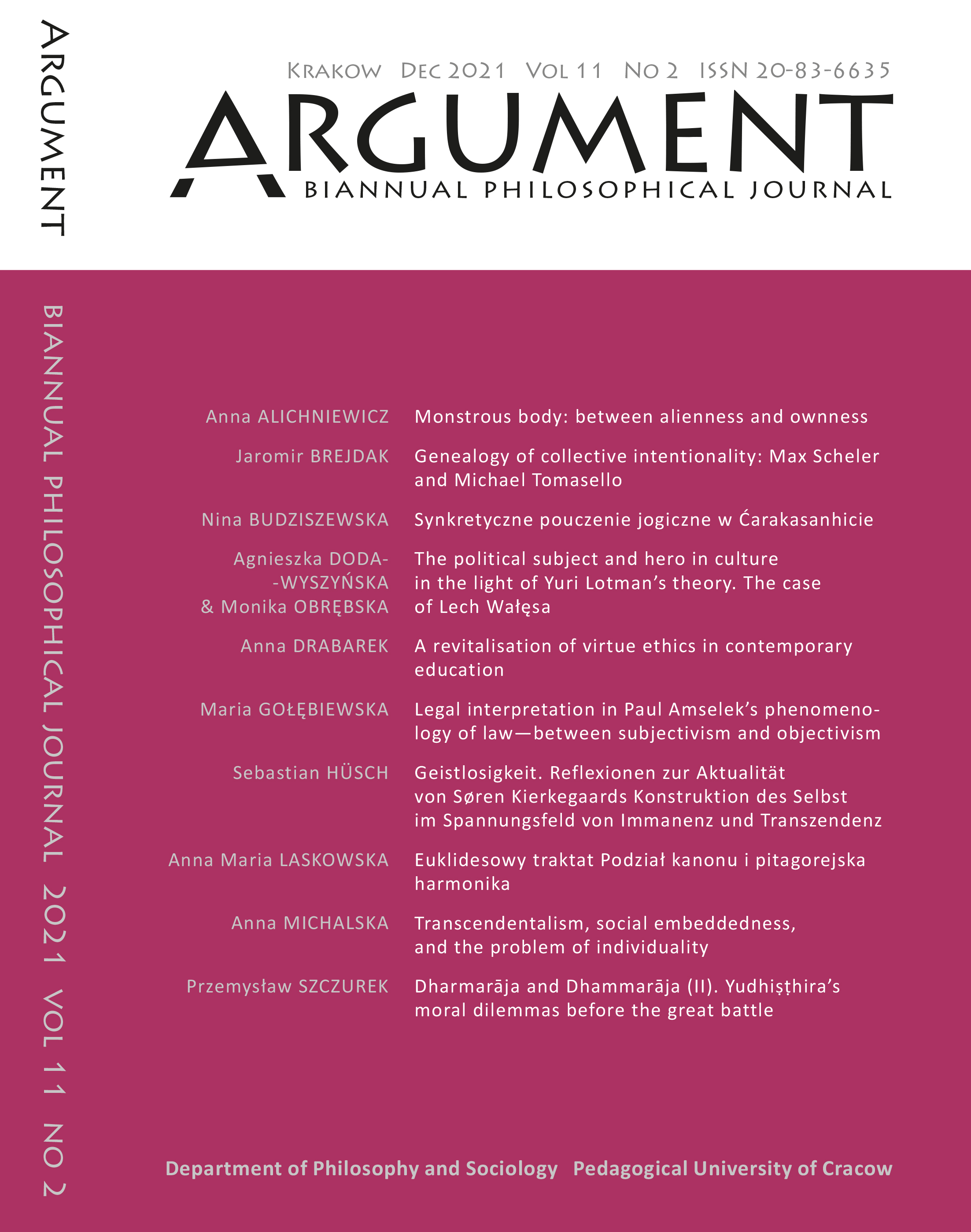Transcendentalism, social embeddeddness, and the problem of individuality
DOI:
https://doi.org/10.24917/20841043.11.2.7Keywords:
normativity; social embeddedness; transcendentalism; social development; psychological development; imitation learningAbstract
It would not be much of an exaggeration to say that the notion of ecological and social embeddedness is one of the most exploited philosophical ideas these days, both in the academia and beyond. The most troublesome about the overall trend is that many proponents of the idea of social embeddedness simplistically consider selfhood as a form of aberration which merely provides vindication for inequality and violence. In this paper, instead of attacking the problem of the individual versus the collective head-on, I approach it by way of a critique of Stephen Turner’s repudiation of transcendental collectivism (Turner, 1994; Turner, 2010). According to Turner, transcendental entities, such as tacit knowledge, presuppositions, or traditions, should be altogether removed from explanatory schemata in the social sciences. I believe that Turner’s razor cuts too deep and the rejection of implicit framing is at best premature. Against the background of the identified shortcomings of Turner’s model of interactive learning, I track the interrelations between social development and the development of the self with an eye to showing that the relationship between individual selves and social reality is an extremely complex and multifactorial matter which we cannot hope to navigate without a proper transcendental frame. The frame is what mediates the relationship between the individual and the collective.


